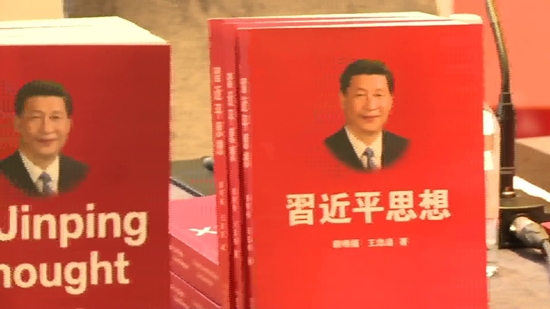
Periodically, the Chinese Communist Party reminds those who pursue profit in Chinese markets that they’d better not be too capitalistic and entrepreneurial as they go about it—better not be too selfish and individualistic as they create wealth and enable human survival. They must be sure to submit to the Party’s collectivist ideology and obey the Party’s recipe for socialist success.
Reuters reports (February 20, 2024):
China’s top financial watchdogs vowed to keep up a campaign to ensure that the sector adheres to Communist Party values and serves the economy while avoiding “excessive” and “reckless” risks, the party’s official newspaper said on Tuesday….
“The financial powerhouse we want to build is a socialist financial powerhouse under the leadership of the Chinese Communist Party,” the party’s top financial policy body and ideology taskforce said in an article in the People’s Daily.
“Stable financial development is guaranteed by strict and tough supervision,” added the article, jointly attributed to the office of the Central Financial Commission and the Central Financial Work Committee.
The entrepreneur must not be an entrepreneur except in highly stunted fashion. He must not follow his own judgment about whether a chance of great success is worth the risk of losing everything. He must instead strive for “stability,” and any bricks he adds to the financial powerhouse must be CCP-sanctioned socialist bricks.
If everyone followed such injunctions strictly, there would be no instances of exceptional success in the Chinese economy except insofar as a company benefited from governmental largesse and special favors. At least a few Chinese businessmen do great things, and, like foreign businessmen operating in the Chinese market, probably take care to make the right CCP-appeasing noises if and when they ignore the letter of CCP pronouncements.
How have China’s entrepreneurs achieved whatever success they have achieved in recent years? Was it primarily due to their own hard work, perceptiveness, alertness to opportunities, ingenuity, the sort of thing you might find elucidated in the work of economists like Mises or Kirzner?
A sister publication of People’s Daily, the English-language Global Times, tells us in an article entitled “Xiconomics in Practice” that the turning point in modern times was the installation of Xi Jinping as dictator.
Since 2012, China has witnessed an extraordinary economic transition, with historic achievements in all aspects of the economy from its size to quality. Such an unparalleled feat does not just happen, especially during a tumultuous period in the global geo-economic landscape and a tough phase in China’s economic transformation and upgrading process. It was Xi Jinping Thought on Socialism with Chinese Characteristics for a New Era that guided the country in overcoming various risks and challenges, and in keeping the China economic miracle alive.
So that’s it then. No business in China can do much to fulfill the needs and desires of consumers, cope with challenges, and turn a profit without the crucial guidance and inspiration of Xi Jinping Thought on Socialism with Chinese Characteristics for a New Era.
It’s true enough that business success doesn’t just happen, especially during tough phases. It follows, then, as A follows B, that to make any progress you do really need Xi Jinping Thought on Socialism with Chinese Characteristics for a New Era. Indeed, if you don’t study, absorb, apply, and regurgitate the dreary mess of torpid pontificating that is Xi Jinping Thought on Socialism with Chinese Characteristics for a New Era, you’re dead in the water.





